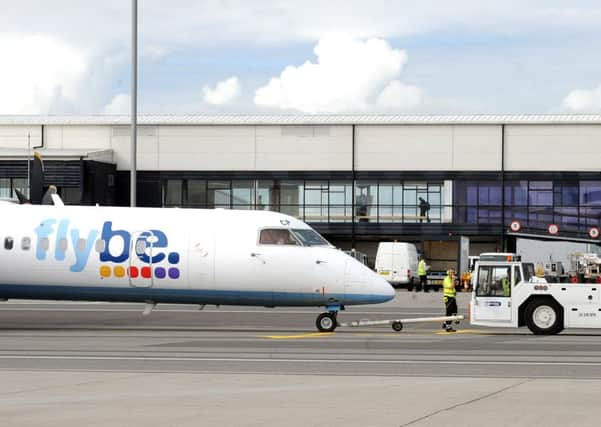Brian Wilson: Flying for Scots has become lottery


Now air passengers face a daily lottery of delays and cancellations. Over the past year, the schedule of Scottish internal flights has gone from being utterly reliable, except in extreme circumstances which everyone understands, to entirely unpredictable.
The performance of Loganair, flying under the colours of Flybe, is the hottest political issue in island communities at present. These really are lifeline services and the degree of hardship imposed by a meltdown in reliability extends far beyond the normal inconveniences, occasionally experienced by passengers the world over.
Advertisement
Hide AdAdvertisement
Hide AdPublic and political pressure, particularly from Shetland, appears to be producing some results. Loganair is now committed to employing more engineers at their Glasgow base which is the source of many of the problems. Saab, who built the ageing fleet operated by Loganair, are to base a parts service close to Glasgow airport in an attempt to keep the planes in the air for more of the time.
The Scottish Government has been told that these changes will return services to normality by the end of March. We shall see. Although only a couple of routes are now directly subsidised, a very substantial part of Loganair/Flybe revenues comes from the taxpayer. Island residents are eligible for the Air Passenger Discount scheme which subsidises the very high fare levels while health boards often pay for more than half the seats on a flight, to take patients to mainland hospitals.
Safety is always at the back of people’s minds and there have been a few worrying incidents in recent months. However, when Loganair pilots took the unprecedented step in October of complaining publicly about the condition in which the planes often reach them, with faults unrectified, they also stressed that they would never fly them until satisfied of safety. Hence even more delays. I welcome and accept that assurance.
There is a complete lack of transparency on the role Flybe plays in all this. They appear content to suffer reputational damage and to lend their livery to the Loganair operation.
Yet they absolutely refuse to take any responsibility for what is going on. Presumably they share in the earnings from these operations but nobody knows what responsibilities, if any, they also carry.
“It can’t go on like this” is a regular refrain. But whose responsibility is it? When I went looking for an answer to that, an interesting fact emerged – the answer is “nobody’s”.
The regulatory role of the Civil Aviation Authority is limited to safety and licensing. But the assumption is that because aviation is such a competitive business, the market will take care of issues relating to reliability.
The problem is that in the case of the Scottish lifeline services, there is no market. There is an absolute monopoly – and nobody to regulate it or protect the consumer interest.
Advertisement
Hide AdAdvertisement
Hide AdRegardless of how Flybe/Loganair deal with their immediate problems, that is an omission which is in need of rectifying.
l Brian Wilson, a former MP and cabinet minister, is chairman of Harris Tweed Hebrides and a UK business ambassador